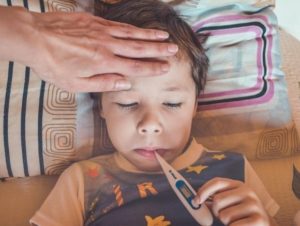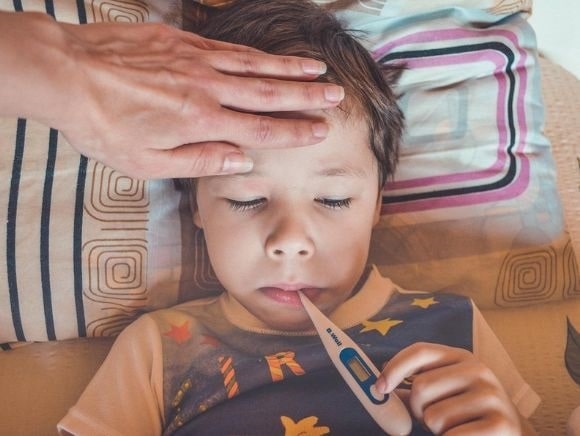COVID-19 numbers rose and fell in the first five months of this year. It appears that all that time isolating at home, wearing masks, and socially distancing did some good in helping combat the spread of COVID, but it also harmed our immune systems.
Everybody’s Sick
Everyone catches a cold here and there, no matter the age. But as you get older, your immune system strengthens, so that adults typically don’t experience viruses, colds, influenza, and other temporary illnesses as often as children. But the pandemic has flipped that notion on its head.
Last summer, physicians noticed a rise in respiratory viruses as most of the country lifted restrictions. The summer months are typically the “off season” for colds and illnesses alike, but as people began assembling and being social, more and more patients ended up in doctors’ offices.
A year later, things aren’t much better, and perhaps they’re worse. Dr. Pamela Schomer of the University of Pittsburgh Medical Center said, “Parents are frustrated because one illness is followed by another.” With kids losing the masks, regaining social skills, and shedding anxieties, they’re spreading germs they either never gained immunity to or avoided over the last two years. Schomer explained, “We see a variety of respiratory illnesses, ranging from colds to deeper colds, like more than what we call colds or bronchiolitis, as well as some stomach viruses that cause gastroenteritis.” The gastrointestinal illnesses may also be triggering severe cases of hepatitis rising in healthy kids.
Those kids tend to infect their parents, whose immune systems are also struggling. Kids are catching the colds, viruses, and stomach bugs, while adults are concerned about developing shingles. According to research, adults over 50 who had mild cases of COVID are 15% more likely to develop shingles within six months than those who have not been infected with COVID-19. Those hospitalized with severe cases are 21% more likely than those who never caught it.
What Now?
According to infectious disease journalist Helen Branswell, noted for her medical science reporting, communities with the most significant restrictions and social distancing efforts are suffering the most. She also cited numerous health experts who say we’ve got a rocky road ahead.
 Marion Koopmans, head of the department of viroscience at Erasmus Medical Center in the Netherlands, asserted that we are entering a time when the diseases we thought we understood will surprise us. She said the disruption of standard patterns of infections will make it difficult to understand them now.
Marion Koopmans, head of the department of viroscience at Erasmus Medical Center in the Netherlands, asserted that we are entering a time when the diseases we thought we understood will surprise us. She said the disruption of standard patterns of infections will make it difficult to understand them now.
Hubert Niesters, a professor of clinical virology and molecular diagnostics at the University Medical Center in Groningen, Netherlands, claimed newborns and children are at the highest risk. Babies born during the pandemic have few antibodies passed down from their mothers in the womb because the mothers were sheltered from RSV and other respiratory pathogens. Koopmans studied the antibodies of young children and labeled them an “infection honeymoon.”
But these medical experts warned this fight against every illness under the sun is not close to ending. The COVID-19 restrictions left a pool of susceptible people who can’t build their immunity overnight. Influenza specialists warn that people who haven’t been infected recently may be part of a new terrible flu season. Even in May of this year, flu cases were abnormally high and could worsen next year.
Will we ever return to “normal,” when colds, viruses, shingles, and other random illnesses don’t knock people out every other week? Yes, when we eventually reach herd immunity. These viruses will dissipate as we strengthen our immune systems and build resistance — but it will take time.




